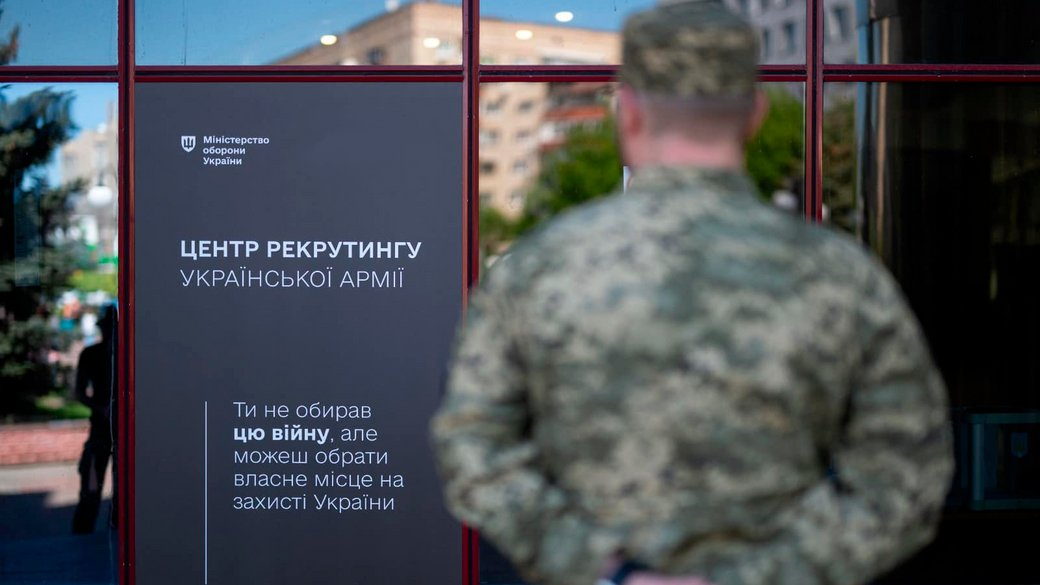Additional actions of the Commission are required to confirm the deferral due to the necessary care for a relative.
The Cabinet of Ministers has decided on the details of granting deferment to guardians who need additional acts to confirm care.
In order to confirm the fact of care and grant a deferment from military service, a conscript must obtain additional documents.
This is a law that determines the level of care for a person and is issued by a specially created commission.
This is stipulated by the Procedure for Conscription of Citizens for Military Service during Mobilization for a Special Period, approved by the Cabinet of Ministers of May 16, 2024, No. 560.
This decision details the moratorium, in particular, for the following caregivers- a sick wife (husband), a sick child and/or their father or mother (wife's father or mother's (husband's) father or mother), in the opinion of the Ministry of Health of Ukraine, a deceased person (deceased) who is listed as missing or missing for unexplained reasons is declared dead if he or she is alone and needs constant care.
- the wife's father or mother does not have another able-bodied family member who is obliged to care for the wife who needs continued care after undergoing MSEC or LCC in a medical institution - subparagraphs 9 hours 1 hour 23;
- provided, however, that no other person is unfit for military service and that the following provisions are observed laws necessary for their maintenance (if these persons are themselves disabled, in need of constant care, in custody (other than house arrest), in the form of restriction of liberty or imprisonment; except for the period of serving a sentence) (recall).
- According to the new law, in the absence of persons liable for military service, only one of the persons liable for military service can take care of a person with a disability of group I or II at the choice of the person with a disability) - Article 13, part 1, Article 23;
- a family member of a disabled person of group I or II who takes care of him/her on a regular basis (if there is no family member of the first group, or up to one if there is a family member of the first group).
- first-degree relatives require the opinion of a medical and social expert commission or a medical advisory commission of an inpatient medical institution.
In the absence of first- and second-degree relatives, the provisions of this paragraph apply to family members of a third-degree disabled person of group I or II (Article 23, part 1, Article 14).
Thus, the new resolution states that persons liable for military service referred to in Article 23, part one of Articles 9, 13 and 14 of the Law "On Mobilization Preparation and Mobilization" are provided with care (permanent care) and receive remuneration for this purpose that they are not entitled to receive (assis-tance, allowances), to apply for military registration with a paper application to the district (city) CMC at the place of residence or its department for consideration of the issue of granting a deferment from military service during mobilization or in electronic form, especially when the electronic services tech-nically perform the call-up, The application is accompanied by a written application of a person in need of care or permanent care in any form, indicating the RNICP, call-up It is confirmed that there are no other persons (spouse, able-bodied children) who are legally obliged to support them or other able-bodied family members, who are obliged to provide permanent care, the MCC of the district (city) or its separate subdivision checks the presence of such persons liable for military service in the military register, the family relationship between the conscripts and persons requiring care (long-term care), and the presence or absence of conscription.
Using information from the State Electronic Register of Persons Liable for Military Service of Ukraine, the National National Register of National Identification Numbers, the military register of other regis-tered/reported addresses of residence of persons in need of care, or the reported/registered residence of the US Population Register and other information systems, registers and databases, including the exchan-ge of information on the registration of local addresses.
The materials based on the test results will be sent to the head of the local government at the place of residence of the caregiver or at the address of the declared/registered place of residence.
If the information provided in the application for conscription is contradictory or it is impossible to establish the fact that a person liable for military service provides care (long-term care), the commission does not consider the application.
In order to establish the fact of providing care, a person liable for military service is sent to the head of the executive body of a village, town, city or district council to provide care (care) with an application (if any).
It is submitted at the address of residence or the specified/notified address of residence.
The application is reviewed by the commission for establishing the fact of personal care (permanent care), the composition of which is determined by the head of the executive body of the district council in the village, town, city, or city.
The address of the place of residence (if any) or the conscription declaration/registration address with which the relevant application was submitted.
The commission for establishing the facts of long-term care (long-term care) may include a deputy of the local council, a representative of the executive body of local self-government and a total of five or more state bodies.
Based on the results of its work, the commission to establish the facts of personal care (long-term care) draws up a constituent act, taking into account the documents provided by the TCC of the district (city) or its departments.
Facts about personal care (long-term care).
The law is one of the documents provided by persons liable for military service in a district (city) or its subdivision to obtain a postponement of military service for a special period under mobilization.
As we wrote earlier, the commissions (separate sectors) established in districts (cities) proposed to recognize the postponement of military service for a special period during mobilization.
The configuration is as follows:
- The chairman of the commission is the head of the district (city) MCC (own department).
- Members of the commission are representatives of district organizations, structural units (education and science, healthcare, social protection, child welfare, administrative service centers), city state administration (military administration).
The Commission considers the submitted application and received documents and, if necessary, assesses the legality of the grounds for granting the deferral and provides relevant information confirming the applicant's right to deferral by filling out an application at state authorities or using information from open e-mail and registering.
The committee is obliged to consider the received application and the document confirming the right to deferment within 7 days from the date of their receipt, but no later than the next day from the date of receipt of information on the application by the public authorities.
Such committees have the right to refuse to adjourn and reconsider their decisions under certain conditions.
Thus, the adopted amendments to the current law are based on the changes in requirements at the time and the introduction of martial law in Ukraine, evaluation. legal analysis of the situation, document analysis and examination of documents, lawyer's consultation, lawyers and legal opinions and written consultation.





























